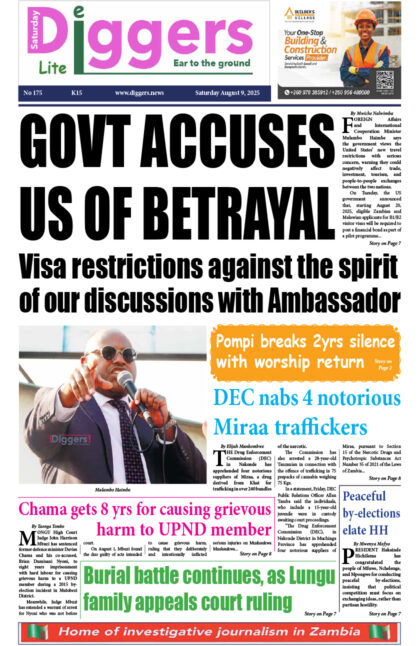The Zambia Federation of Disability Organisations (ZAFOD) has challenged the Electoral Commission of Zambia (ECZ) to address voter irregularities of disability types during the voters verification period which started on Monday.
In a statement, Tuesday, ZAFOD federal director Justine Bbakali said his organisation had observed that the commission did not consistently register disability types during the voter registration exercise.
“The Zambia Federation of Disability Organisations (ZAFOD) calls upon the Electoral Commission of Zambia (ECZ) to allow voters to review and correct, if necessary, their disability status during the voters’ register inspection period. This request is based on ZAFOD’s findings from it’s select observation of voter registration, where ZAFOD observers noted that disability types were not consistently registered. Although ZAFOD applauds the ECZ for incorporating the registration of disability type into the voter registration exercise, ZAFOD notes with concern that ECZ officials failed to consistently record voters’ disability type, with some ECZ officers recording only disabilities that they themselves assessed such as the visually impaired and those with physical disabilities. Therefore, the register will not reflect the correct disability type of a voter in all cases, which limits the ECZ to provide reasonable accommodation on the Election Day. On December 20, 2020, the Zambia Federation of Disability Organisations (ZAFOD) deployed four members of its Technical Working Group, who were duly accredited by the Electoral Commission of Zambia (ECZ), to eight selected registration centers in three Lusaka constituencies, following the extension of the voter registration period to monitor the voter registration extension exercise,” stated Bbakali.
“ZAFOD calls on the ECZ to allow for the correction of disability type during the inspection period and for the ECZ to publicise correction will be allowed so that persons with disabilities can ensure that their disability information is accurately captured. ZAFOD’s observers also noted that multiple registration centers visited were not accessible to those with physical disabilities, requiring voters to go up steps or presenting other obstacles to accessing voter registration. These findings, as well as ZAFOD’s concerns on the lack of systematic and complete recording of voters’ disability types are consistent with the nationwide observation findings published by the Christian Churches Monitoring Group (CCMG). ZAFOD further calls on the ECZ to undertake an analysis of accessibility of venues that will serve as inspection centers and polling stations and undertake adequate measures to make all of these venues fully accessible to persons with disabilities, so they can freely participate in the voter register inspection exercise and in casting their votes on Election Day.”
























